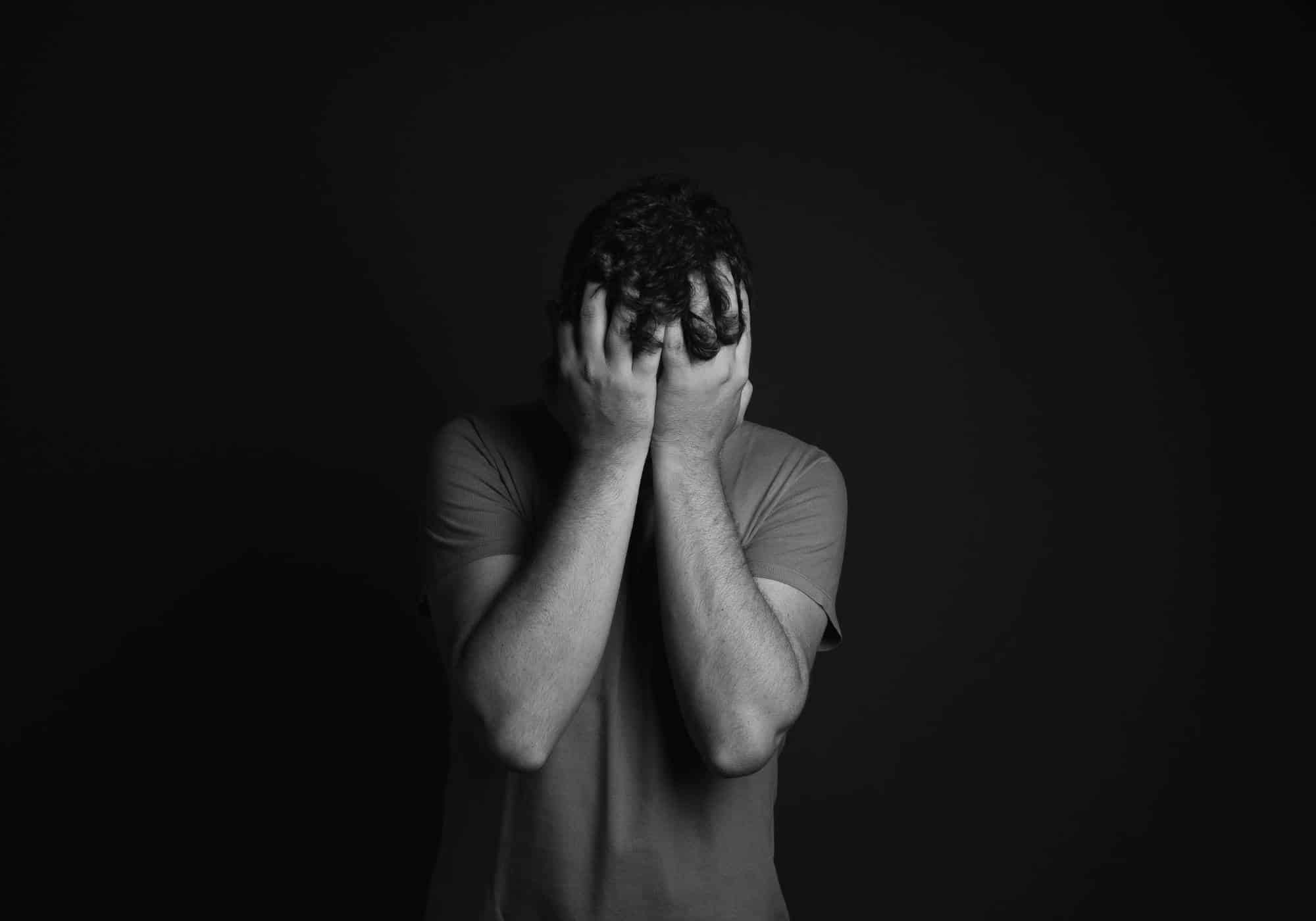Major depressive disorder, sometimes called major depression or clinical depression, is a common mental health issue that can affect how a person thinks, feels, and behaves day to day. Unlike fleeting sadness, major depressive disorder creates ongoing low moods and drains motivation. It can make even simple tasks—like preparing a meal or going to work—feel overwhelming. When these feelings become severe or persist for weeks on end, it’s important to pay attention.
Many people in Atlanta, GA, struggle with mood disorders and may benefit from outpatient mental health treatment in Atlanta. This kind of support can offer strategies to manage difficult emotions and improve overall well-being. By better understanding major depressive disorder symptoms, causes, and types, you or a loved one can seek appropriate help sooner.
What Is Major Depressive Disorder?
Major depressive disorder is a serious mental health condition defined by persistent sadness, low self-worth, and an overall lack of motivation or interest in daily life. Some individuals encounter it only once, while others have multiple episodes that vary in intensity. These mood issues might last a few weeks or become an ongoing challenge. Either way, major depression can severely affect relationships, school, work, and social life.
People with major depressive disorder might feel stuck in hopelessness or guilt. They may also struggle to see a future that feels positive, leading them to question if things will ever improve. At times, this sense of despair can spiral into thoughts of self-harm or suicide, emphasizing how important it is to get prompt professional support.
Types of Major Depressive Disorder
Mental health professionals often use specifiers to label different types of major depressive disorder, highlighting the specific symptoms or timeframe:
-
Seasonal Affective Disorder (SAD)
This type of major depression appears mostly during winter, when sunlight is scarce. People may notice they feel more down or lethargic during darker months. -
Psychotic Depression
Psychotic depression includes major depressive disorder symptoms plus hallucinations or delusions. A person may experience false beliefs or see and hear things that aren’t there, often tied to intense emotional pain or past traumatic events. -
Postpartum Depression
This arises in some new mothers, usually shortly after childbirth, and can be linked to fluctuating hormones, as well as the stress of caring for a newborn. -
Melancholic Depression
Melancholic depression involves typical signs of major depression disorder—such as lost enjoyment in activities—along with changes in weight and motivation. People might feel physically slowed down or utterly unable to experience pleasure. -
Catatonic Depression
In catatonic depression, individuals may have motor disturbances. They could become almost motionless or exhibit repeated, involuntary movements. Behavioral issues, such as not responding to outside stimuli, may also appear.
Recognizing the different types of major depressive disorder helps mental health professionals tailor a specific treatment plan. It also gives people a clearer idea of what they’re experiencing and why their symptoms might look unique.
Symptoms of Major Depressive Disorder
People often ask, “What does major depressive disorder feel like?” In reality, signs can vary, but there are some common themes.
Key symptoms of major depressive disorder include:
-
Prolonged Sadness
Feeling sad, empty, or tearful most of the day, nearly every day. -
Loss of Interest (Anhedonia)
Activities that were once fun or meaningful might no longer spark any excitement. -
Feelings of Guilt or Hopelessness
A persistent sense of worthlessness can overshadow everything, fueling negative self-talk. -
Trouble Concentrating
Working on tasks or making decisions may become a struggle. Forgetting small details can happen more often. -
Social Withdrawal
Spending less time with friends and family or avoiding social events entirely. -
Irritability and Agitation
Small annoyances might trigger bigger emotional reactions than usual. -
Suicidal Thoughts
People with major depression may think about death, self-harm, or suicide. This is a serious sign that professional help is urgently needed. -
Sleep Disturbances
Insomnia or oversleeping can happen. Some find it tough to fall asleep or wake up multiple times during the night. -
Fatigue and Low Energy
Everyday tasks can feel exhausting. Getting out of bed might take a great deal of effort. -
Appetite Changes
Some individuals lose interest in food and experience weight loss, while others seek comfort in overeating. -
Physical Complaints
Frequent headaches or body aches can arise without a clear medical reason.
It’s worth noting that children can show major depressive disorder symptoms differently. They might appear more irritable and cranky rather than overtly sad. You could see a drop in their academic interest, a slump in grades, or more clinginess than usual.
Causes of Major Depressive Disorder
Experts haven’t identified a single cause of major depression but generally believe it emerges from a mix of genetic, environmental, and psychological factors. These can lead to changes in how the brain’s neurotransmitters function.
Here are the main influences:
-
Genetics
A family history of depression or mood disorders could raise your risk. Specific genes may affect how your brain manages certain chemicals, making you more vulnerable to major depressive disorder. -
Environment
Growing up in a stressful, chaotic, or abusive home environment can increase the likelihood of experiencing major depression later in life. Significant losses—like the death of a loved one—or difficult job or school situations can also elevate the chances of developing depression. -
Hormonal Imbalances
Sometimes shifts in hormones, such as after childbirth or during menopause, can kick-start major depression disorder symptoms. -
Psychological and Emotional Factors
If you struggle with low self-esteem or negative thought patterns, you might be more prone to major depressive disorder. Traumatic childhood events or chronic stress can also wear you down over time. -
Substance Use
Misusing alcohol or drugs may contribute to the onset of depression. Some medications for unrelated conditions can also trigger low moods.
Understanding these causes can help you recognize why certain people are more susceptible. Even if you have a genetic predisposition, awareness of environmental triggers or psychological stressors can help you seek prevention strategies or early interventions.
How Is Major Depressive Disorder Diagnosed?
To diagnose major depressive disorder, a mental health professional (such as a psychiatrist, therapist, or psychologist) performs a detailed clinical assessment.
This usually includes:
-
Personal and Family History
You might discuss past mood problems or any family members who’ve faced similar issues. -
Symptom Evaluation
A practitioner will explore your mood, thoughts, and behaviors in depth, noting what you’ve felt or experienced. -
Major Depressive Disorder Criteria
According to the Diagnostic and Statistical Manual of Mental Disorders (DSM-5), you must exhibit at least five of the listed symptoms (including persistent low mood or loss of interest) nearly every day for at least two weeks. -
Physical Health Exam
Sometimes, a general physician performs blood work to check for medical conditions that mimic major depressive disorder symptoms. Thyroid imbalances, vitamin deficiencies, or other health issues might look like depression but require different care. -
Mental Status Examination
This step focuses on your behavior, appearance, thought content, memory, and mood during the session. It helps confirm major depression and rule out conditions with overlapping symptoms, such as anxiety disorders or bipolar disorder.
A clear diagnosis opens the door to major depressive disorder treatment. Specific approaches can vary, but many people see progress through therapy, medication, lifestyle changes, or a combination of all three.
Who Is at Risk for Major Depressive Disorder?
Major depressive disorder can affect anyone.
However, certain factors can raise the risk of developing major depression disorder:
-
Childhood Trauma
Experiences involving physical, emotional, or sexual abuse can raise the likelihood of more severe or prolonged depression episodes. -
Family History
When close relatives, especially parents or siblings, have dealt with major depressive disorder, it increases your odds of also experiencing it. -
Existing Mental Health Conditions
Having conditions like anxiety or post-traumatic stress disorder may make you more vulnerable to depression. -
Chronic Illness
Serious health conditions such as diabetes, heart disease, or cancer can strain emotional well-being and elevate the risk of major depression. -
Substance Use
Alcohol or drug misuse can worsen low moods or spark a depressive episode. Substance use disorders often appear alongside major depressive disorder symptoms. -
Past Depression Episodes
If you’ve had one or more major depression episodes, you’re more likely to have another.
Being aware of these risk factors doesn’t mean you’ll automatically face major depression. Instead, it highlights areas where you might need extra care or support. Reaching out early can have a big impact.
Major Depressive Disorder Statistics
Research has helped experts understand how widespread major depression is and how it impacts different groups of people.
Here are some noteworthy findings:
- Prevalence: Each year, about 16 million individuals in the United States deal with major depression.
- Lifetime Frequency: Studies suggest that 20–26% of women and 8–12% of men in the U.S. will face major depressive disorder at some point in their lives.
- Average Age of Onset: Major depressive disorder often begins around age 32, though it can arise at any stage of adulthood.
- Adult Population Impact: Nearly 6.7% of the U.S. adult population has a major depression episode in a given year.
- Recurrent Episodes: Between 20–25% of adults experience at least one major depression episode in their lifetime.
- Gender Differences: Women are roughly twice as likely as men to be diagnosed with major depressive disorder. Hormonal factors, such as pregnancy or menopause, could be a contributing factor.
- Suicide Risk: Around 2–8% of adults struggling with major depression die by suicide, and about half of those who die by suicide have a mood disorder like major depression.
- Genetics: About 40% of the risk for developing major depression disorder may be inherited.
These statistics underscore the seriousness of major depressive disorder and highlight the importance of treatment. Although major depression is common, it’s also treatable through a blend of therapies, medication, and support.
Spells of Sadness vs. Major Depressive Disorder
It’s normal to feel sad occasionally, especially after a personal loss or significant life change like ending a relationship or losing a job. That kind of sadness generally fades with time and doesn’t usually interfere with everyday activities. However, when sadness lingers for weeks or months and makes you feel trapped in hopelessness, that’s a red flag.
Major depressive disorder can disrupt sleep, eating, personal relationships, and job performance. Overwhelming thoughts of worthlessness and guilt may develop, and those feelings can spiral into self-harm ideas or suicide planning. Recognizing the difference between a passing low mood and major depression is crucial for timely help.
If you notice yourself or someone you care about dealing with major depressive disorder symptoms for at least two weeks—like intense sadness, no interest in fun activities, or constant fatigue—reaching out to a mental health professional can be a life-changing step. In Atlanta, GA, many find that outpatient mental health treatment in Atlanta suits their lifestyle, providing the support needed while allowing them to keep up with daily obligations.
Seeking Treatment for Major Depressive Disorder
If you or someone you love might be facing major depressive disorder, know that treatments exist and can make a real difference. Early intervention typically improves outcomes, so don’t wait to get support.
Major Depressive Disorder Therapies
Cognitive Behavioral Therapy (CBT), Interpersonal Therapy (IPT), and other talk therapy approaches help individuals reframe their thoughts, work through emotional challenges, and build healthier coping strategies. Many find therapy is essential in tackling negative thought cycles and developing tools to reduce the likelihood of future episodes.
Major Depressive Disorder Medications
Some people benefit from antidepressant medications. These include SSRIs (Selective Serotonin Reuptake Inhibitors), SNRIs (Serotonin-Norepinephrine Reuptake Inhibitors), or other prescription drugs. A mental health provider may switch or adjust your prescription to find the best fit, so it’s important to communicate any side effects or concerns.
Lifestyle Changes
Regular exercise, better sleep routines, and balanced nutrition often enhance any existing treatment plan. Simple steps like taking daily walks, practicing mindfulness, and ensuring consistent rest can improve energy and mood levels.
Ongoing Support
Support systems matter. Friends, family, or peers in group therapy can help you stay accountable and encouraged. Checking in with a therapist, especially during stressful periods, can also keep new episodes from escalating. If you’re in Atlanta, GA, consider outpatient mental health treatment in Atlanta, where you can receive consistent care without uprooting your daily life.
Major Depressive Disorder Treatment in Atlanta, GA
Major depressive disorder is more than typical sadness—it’s a serious mental health condition that can affect every aspect of someone’s life, from how they think and feel to how they engage with others. Major depression doesn’t discriminate; it can appear after a traumatic experience, stressful life transition, or without a clear reason at all. If left unaddressed, it may lead to severe consequences, including self-harm or suicide.
Thankfully, there are proven strategies for managing and overcoming major depressive disorder symptoms. Treatment for major depressive disorder might involve therapy, major depressive disorder medications, lifestyle changes, or a combination of all three. If you or someone you care about seems stuck in persistent sadness, contact Hooked on Hope Mental Health in Atlanta, GA at 470-287-1927 or via our online contact form, to explore support options. An individualized approach—like outpatient mental health treatment in Atlanta—can help you or your loved one find relief, regain hope, and work toward a more positive path forward.








